‘Together, we can work to stop the climate crisis’
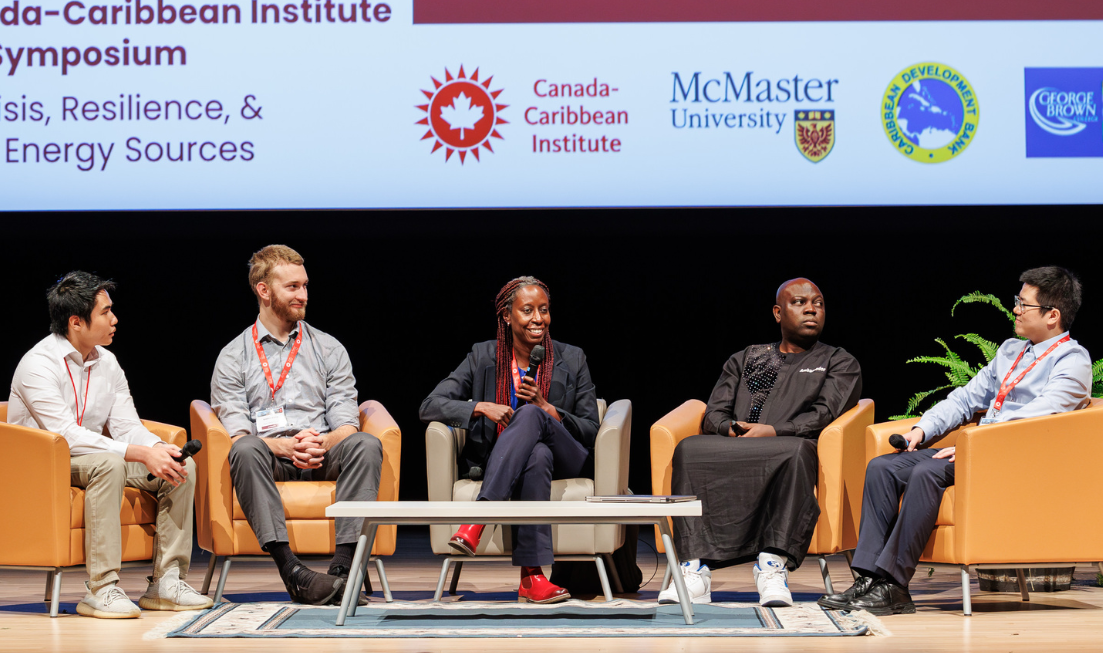
International researchers, students, policymakers and community members exchanged insights and explored innovative solutions to climate change at the third annual Canada-Caribbean Institute Research Symposium, held at McMaster. (All photos by Ron Scheffler for McMaster University)
International scholars, policy makers and leaders joined McMaster students, faculty, staff and community members for a three-day event this month to share insights and explore innovative ways to address the increasingly urgent climate crisis.
The 2024 Canada-Caribbean Institute Symposium, held at McMaster last week, included panel discussions with globally recognized experts as well as student researchers. McMaster is the lead Canadian partner of the Canada-Caribbean Institute.
In addition to sharing research and ideas on a vast range of topics — climate justice, health, housing and food security, climate vulnerabilities, climate resilience, and promoting the adoption of alternative energy sources, to name a few — attendees from Canada and a large number of Caribbean nations also had an opportunity to create and strengthen relationships with peers, colleagues and allies in advocacy.
The symposium also emphasized McMaster’s ongoing partnerships and commitment to internationalization, sustainability, and collaboration across borders and disciplines to find solutions to the climate crisis.
Symposium attendees also toured the McMaster Nuclear Reactor, the new Learning and Discovery Greenhouse, and the archives of Miss Lou and Austin Clarke in the William Ready Division of Archives and Research Collections at the McMaster Library.
Here are some scenes from the symposium:
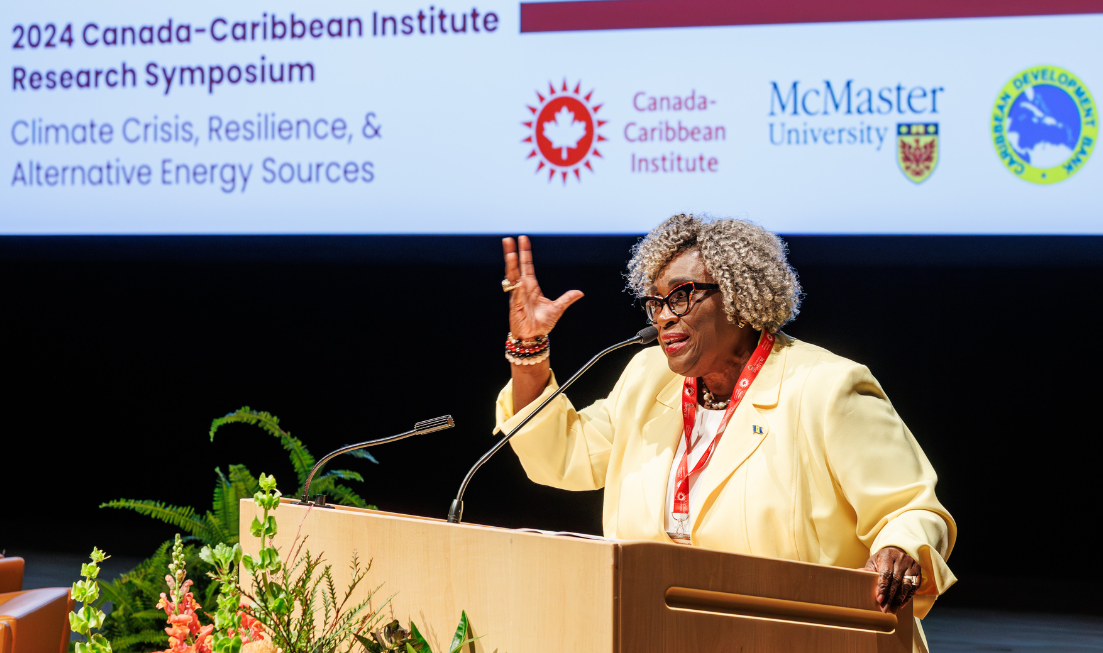
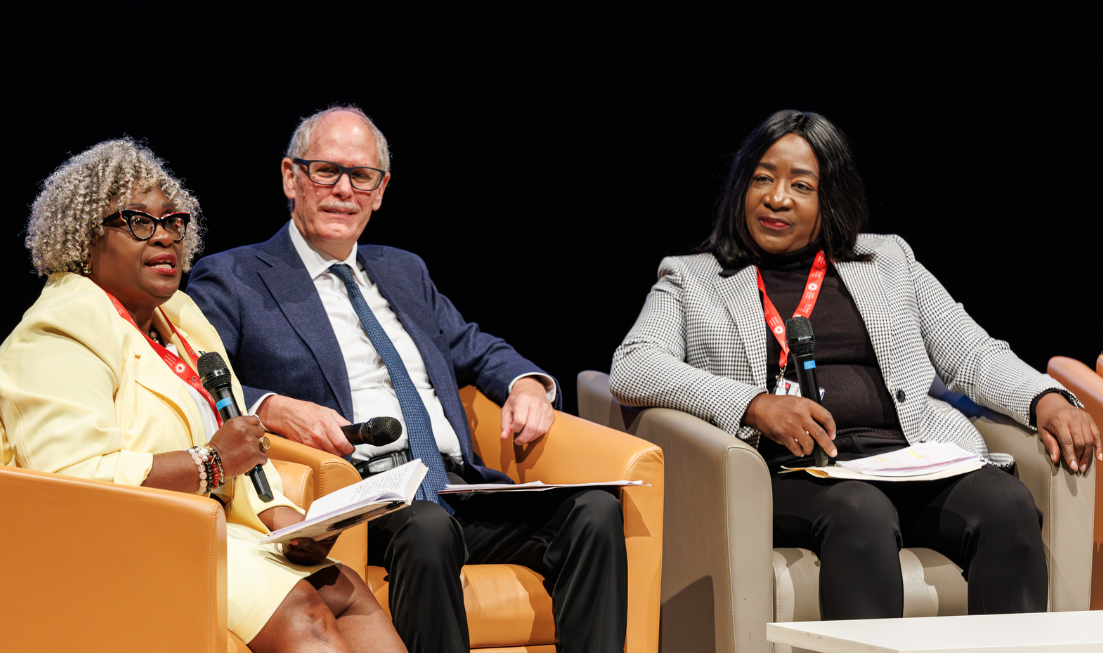
McMaster President David Farrar, who welcomed attendees and also participated in a panel discussion with Thompson and Bahamas Senator Julie Lashell Adderley, spoke of the potential for small modular nuclear reactors, or SMRs, to help small island developing states move away from fossil fuels.
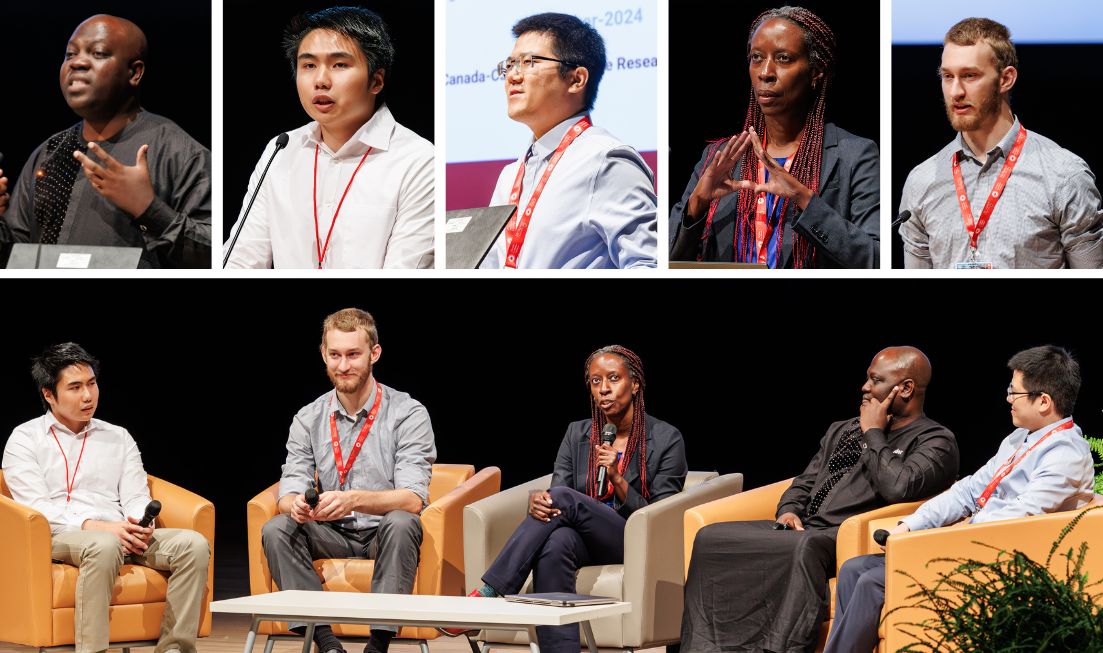
Panel discussions with experts from universities in Canada and the Caribbean covered a range of topics, including climate change mitigation and adaptation strategies; the multifaceted implications of climate change on health; alternative energy technologies and solutions; climate justice and resilience; and sustainable development.
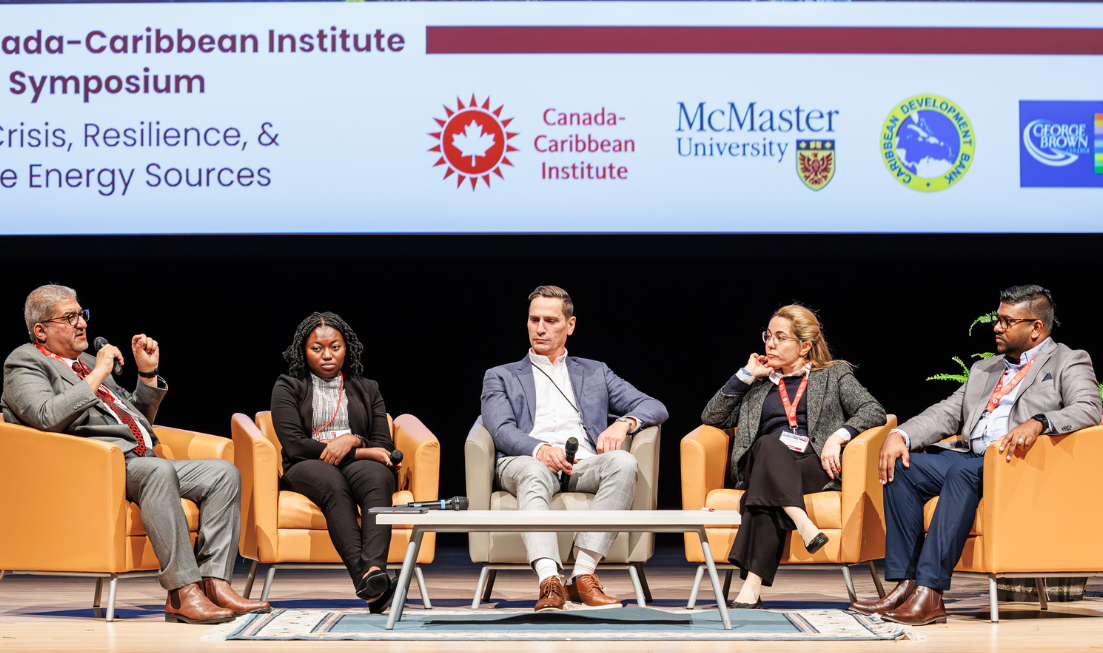


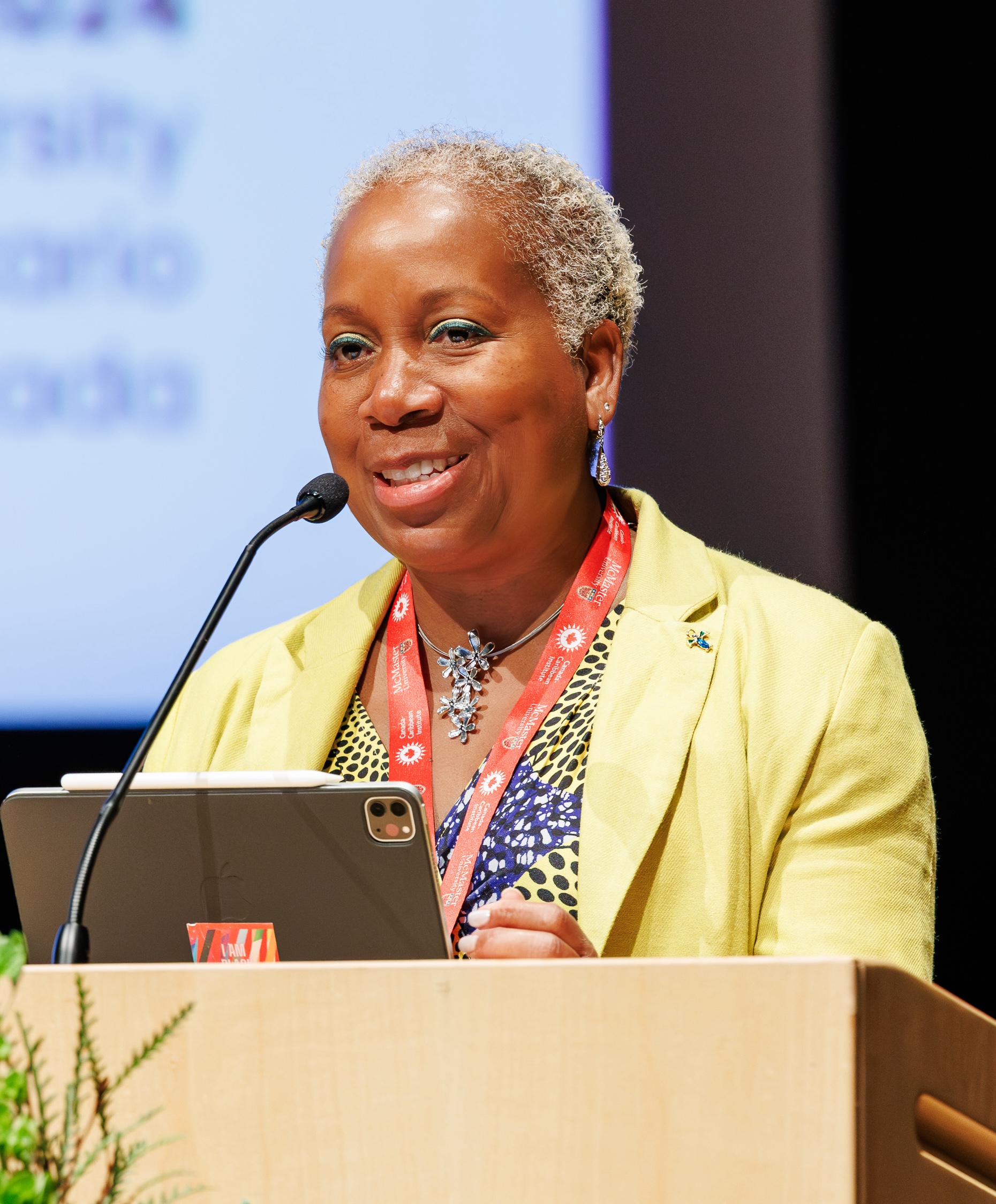
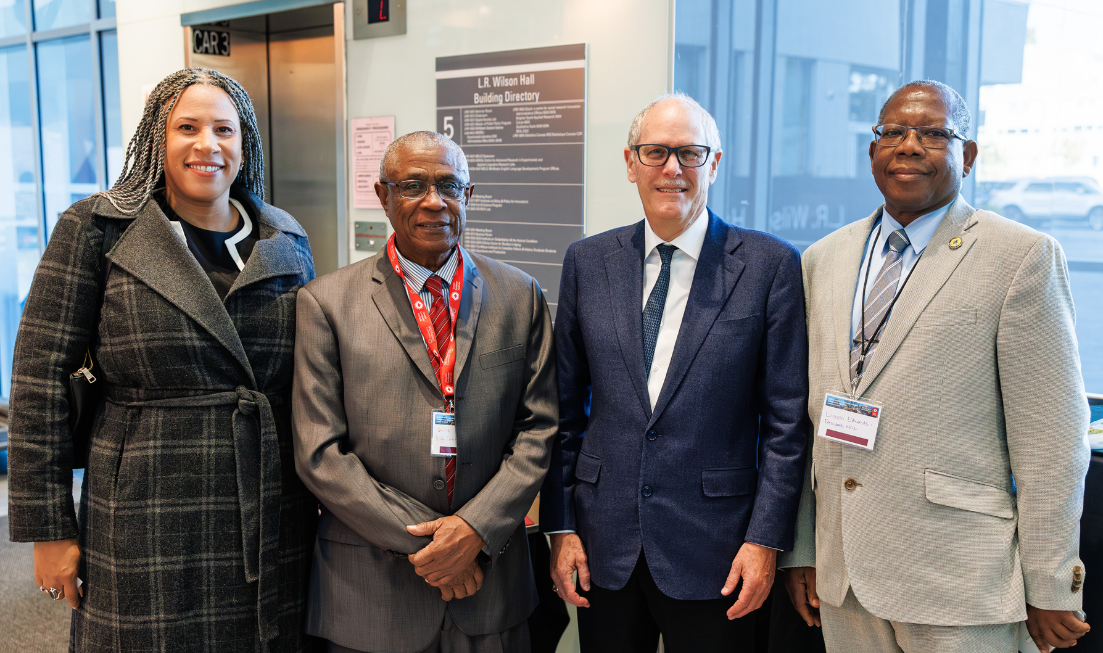
About CCI
Established in 2020, the CCI’s mission is to bring together scholars from across Canada and the Caribbean to collaborate on economic, environmental and social issues that contribute to the shared prosperity of both regions.
Made up of 12 member institutions, the CCI supports research on a range of key policy areas including health; climate change; advancing the United Nations’ Sustainable Development Goals; trade and investment; Caribbean culture and the diaspora; and government and foreign relations, among other areas.


